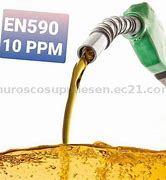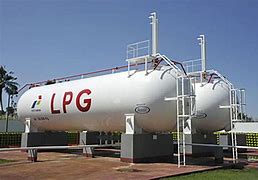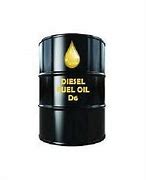Oil & Gas Trading
Maintaining excellence in physical trading of oil and gas requires a diverse set of skills to
effectively manage the complexities of the industry. Here are some key skills and qualities
that you can count on working with us:
1- Industry Knowledge: In-depth understanding of the oil and gas industry, including
knowledge of supply and demand dynamics, pricing mechanisms, market trends, and
geopolitical factors that impact the industry.
2- Analytical Abilities: Proficient in data analysis and interpretation, able to analyze
market data, trends, and indicators to identify trading opportunities and make
informed decisions.
3- Negotiation and Relationship Management: Excellent interpersonal and
communication skills to build and maintain relationships with suppliers, buyers, and
other stakeholders in the industry. This includes negotiating contracts, managing
counterparty relationships, and resolving conflicts.
4- Risk Management: Sound understanding of risk assessment and mitigation
strategies. The ability to evaluate and manage various types of risks, such as market
volatility, credit risks, operational risks, and compliance risks, is crucial to protect the
interests of our clients and partners.
5- Operational Efficiency: Proficiency in logistics and operations management to ensure
smooth and efficient physical movement of oil and gas products from production to
delivery.
6- Adaptability and Resilience: The oil and gas industry is highly volatile and subject to
sudden market shifts. The ability to adapt quickly to changing circumstances, make
informed decisions under pressure, and maintain composure during stressful
situations is critical.
7- Ethics and Compliance: A strong commitment to ethical conduct and compliance
with industry regulations, ensuring all trading activities are conducted in accordance
with legal and ethical standards.
ics
Products we supply

JET FUEL (Jet A-1/ TS-1)
Jet fuel, Aviation Turbine Fuel (ATF), is a type of fuel designed for use in aircraft powered by gas-turbine engines. It is clear to straw-coloured in appearance. The most commonly used fuels for commercial aviation are Jet A and Jet A-1 which are produced to a standardized international specification. During the refining process only 8% of the crude oil is made up of Jet fuel.

EN590 DIESEL (10PPM) ULSD
EN590 (10PPM ULSD) had been introduced along with the European emission standards. With each of its revisions the EN 590 had been adapted to lower the sulphur content of diesel fuel - since 2007 this is called ultra low sulphur diesel as the former function of sulphur as a lubricant is absent .

LIQUEFIED PETROLEUM GAS /LPG
LPG (Liquefied Petroleum Gas) is predominantly propane and butanes, either segregated or in various ratios and mixtures of each product. LPG is a by-product of crude oil production (Associated Gas) and a by-product of natural gas production (Non Associated Gas).

LIQUEFIED NATURAL GAS /lng
Liquefied Natural Gas (LNG) is natural gas, cooled to minus 161°C until it becomes a liquid. It is stored under atmospheric pressure and reduced in volume by the ratio of 1:600. It is easier and less costly to transport, particularly where access to pipelines is not available.

D6 VIRGIN FUEL OIL/bunker oil
D6 is also be known as Residual Fuel Oil and is of high-viscosity. This fuel oil requires preheating to 220 – 260 Degrees Fahrenheit. D6 is mostly used for generators. D6 is a type of residual fuel, mainly used in power plants and larger ships. The fuel requires to be preheated before it can be used.

CRUDE OIL
Crude oil is a naturally occurring, unrefined petroleum product composed of hydrocarbon deposits and other organic materials. A type of fossil fuel, crude oil can be refined to produce usable products such as gasoline, diesel and various forms of petrochemicals. It is a nonrenewable resource, which means that it can't be replaced naturally
ics fareast
STANDARD TRANSACTION PROCEDURES
Oil and Gas Transaction Procedures vary from buyer to buyer and it is always extremely
difficult to get both buyer as well as seller agree to any one set of Transaction Procedures.
We at ICS, as a facilitator we try hard to put in place a mutually acceptable transaction
procedure between clients and our seller partners on a case to case basis.
Whereas it is mandatory for all clients (buyers as well as sellers) to submit their own set of
transaction procedure while submitting their specific buy or sell offers, we certainly intervene
to make certain sellers drop clauses which inevitably leads to any kind of upfront payment.
We are listing a few examples below:
1. Splitting Shipping Charges; and asking the buyer to pay half of those charges to the
shipping company prior actual shipment or handover of shipment.
2. Asking for issuance of any Banking Instrument prior verification of PPOP documents
by the buyer.
3. Asking the buyer for Tank Storage Receipt (TSR) or Charter Party Agreement (CPA)
prior providing Proof Of Product, Location, and valid Inspection Report.
4. Asking for any kind of payment on the pretext of any government charges.
5. Providing third-Party Fiduciary/Banking details that do not relate directly to either
the buyer or the seller.
Please read our ideal transaction procedures for FOB, CIF, and Spot (Dip & Pay)
transactions.
